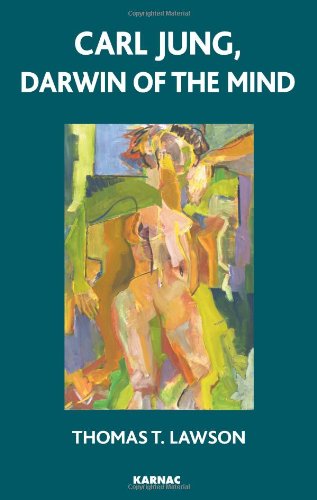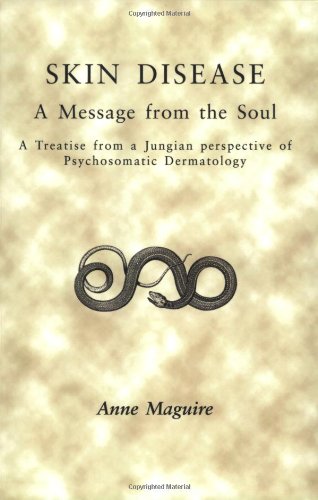Carl Jung, Darwin of the Mind

Book Details
- Publisher : Routledge
- Published : 2008
- Cover : Paperback
- Pages : 236
- Category :
Jung and Analytical Psychology - Catalogue No : 25868
- ISBN 13 : 9781855754683
- ISBN 10 : 1855754681
Our Customers Average Rating
Read all reviews (1)





Carl Jung, Darwin of the Mind is a review and an explanation of Jung's thought set in an evolutionary context. Jung explored the human psyche throughout his long life. His writings, of astonishing scope and depth, elaborate on imagery that can be found in rituals, myths and fables worldwide as well as in the dreams, visions and fantasies of his patients and himself. Jung pursued common threads of meaning to the point of becoming deeply versed in the esoterica of Eastern mysticism, Gnosticism, and alchemy. Taken collectively, Jung's works develop a coherent theory about how the psyche is constructed, including an idea of how consciousness emerged as a part of it.
The author demonstrates that Jung's concept of a collective unconscious structured by archetypes meshes well with accepted views of evolution and can be squared with the most rigorous science of today. So taken, Jung's work is of unrivaled explanatory power and opens new vistas for understanding who we are and how we function.
It is accepted that everything in biology can be explained through Darwinian evolution except the human mind. Jung's theory contemplates that the collective unconscious evolved through natural selection just as did the instincts, which are equally impalpable. From this uniform, inherited unconscious, consciousness arose, and the rapid expansion of consciousness - a latecomer to the psychic scene - over the last 6000 years can be traced in the various cultures in which it has been embodied. Indeed, Erich Neumann, Jung's brilliant successor, has charted this evolution through the myths and rituals of successive phases of culture.
The author enlarges upon Jung's and Neumann's findings by showing that the evolution of consciousness must have occurred, not through genetic selection as with that of the collective unconscious, but through another form of natural selection: that propagated through culture itself.
Reviews and Endorsements
'Thomas Lawson offers Jung for the thinking and acting man and woman. Lucidly and humanely explicating Jung's deepest insights, he also shows how they make sense in daily life as in a court trial or when a dog is run over or a bird 'spooked' by a vehicle, and he eschews vague mystique inviting us to think through Jung's perspective in clear, mature language. He also develops a suggestive argument about the evolution of consciousness, drawing on contexts ranging from contemporary physics and genetics to philosophy. The argument will inform Jungians and others in the mental health field, but this work is helpful to anyone pondering and living in the world. I am grateful for this work!'
- James Peacock, anthropologist, author of "Consciousness and Change"
'As a follower for many years of the great Swiss psychiatrist C.G. Jung, I have enjoyed Mr. Lawson's book very much indeed. It is gratifying that its principal effect can only be to widen and popularize Jung's ideas. While I have always found Sigmund Freud a bit difficult, I cannot speak too highly of a book that explains to ordinary readers like myself Jung's readily comprehensible work. I hope that it will be widely read by lay followers of Jung, both in the United States and the United Kingdom.'
- Richard Adams, Novelist
'The publication of Tom Lawson's Carl Jung, Darwin of the Mind can only be described as synchronistic when seen in the light of today's awareness of the pertinence of the neurosciences to psychoanalysis and depth psychology. In developing his thesis of the evolution of consciousness through culture rather than through genetic selection, Lawson draws an original parallel between the theories of Jung and those of Darwin. With a minimum of jargon and a deep understanding of analytical psychology, the author reaffirms Jung's own thesis that although archetype and instinct are the most polar opposites imaginable, they belong together as correspondences and must be regarded from a scientific standpoint. Along the way, the reader may acquaint or reacquaint her or himself - perhaps from a new perspective - with Jungian thought. The Jung that emerges from this reading is the one he himself always claimed to be: a man of science from whom psyche and soma, the mind and the body, are of a whole.'
- Leslie de Galbert, psychoanalyst
About the Author(s)
Thomas Lawson lives in the Virginia mountains, near Roanoke. He practiced law as a trial lawyer there for twenty-seven years. For the past fifteen years he has been writing, in pursuance of his interest in Carl Jung, and painting.
Customer Reviews
Our customers have given this title an average rating of 5 out of 5 from 1 review(s), add your own review for this title.
Charles Feaster on 12/12/2007




 (5 out of 5)
(5 out of 5)
WOW!
Who says "you can judge a book by its cover?"







